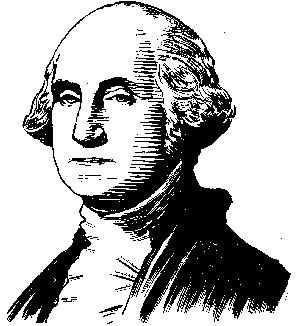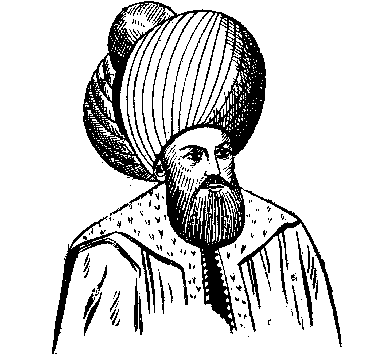|
Making Something from Nothing
Thats right. There is a no full-fledged verb 'to be' in Turkish.
Apparently there used to be one -- 'ermek', but it seems to have gotten lost somewhere along the road to Modern Turkish.
So what do you do in Turkish, when you want to communicate those ideas that are best communicated with the verb 'to be'?
Well, there are two sure ways to communicate 'to be' -- and one other way that works,
sometimes...

The First way...Use the Personal Endings (-im, -sin, etc.)
You can get the effect of the verb 'to be' by attaching the Personal Endings to nouns, adjectives, and adverbs. For example,
serseri (a ne'er-do-well) + sin (you are) gives serserisin
which means, "You're a deadbeat!"
uh, could you expand on 'Personal Endings' a little, please?
and, mebbe show me some complete 'to be' conjugation examples, if poss?

The Second... Use 'olmak'.
The Turkish verb olmak serves fairly well as a substitute for a full-fledged Verb 'to be' in Turkish. Its primary meanings are:
- to become, come to exist, come into being.
Followed by its secondary meanings...
- to happen, to occur, to take place.
And, finally, it has the tertiary meaning...
- to be (to have/occupy a place/position; to show a certain characteristic).
George Washington

Now here are some example sentences
from the days of the American Revolution
that show olmak playing the role of 'to be'
quite adequately...
- 1776'nIn Filadelfiya Kongresi hayli çekismeli oldu, fakat sonunda delegeler bir anlasmaya vardIlar;
The Philadelphia Congress of 1776 was difficult, but in the end the delegates reached an agreement.
- Baskomutan George Washington, çok çalIskan oldu
gu icin her tuttugu iste
muvaffak oluyordu;
Commander-in-Chief George Washington was successful at every job he held, because he was very industrious.
- CumhurbaskanI Washington bazen, hava iyi oldu
gunda, tarlalarI geziyor, halkla ve iscilerle konusuyordu;
When the weather was nice, President Washington sometimes passed through his lands [and] talked with the people and the workers.
But the use of olmak to communicate the verb 'to be', isn't always appropriate. As listed above, olmak has several important meanings that take precedence over the meaning 'to be'. And, besides that, olmak can also have meanings we haven't even mentioned yet (like "to have", "for time to pass", "for something to be acceptable", etc.)
So when you see or hear it,
be ready for it to mean 'to be', but keep an open mind.
It could be carrying one of its other meanings,
depending on the sentence where you find it.

The Third... Use 'bulunmak'
(This is the least reliable way to express 'to be', but it does work sometimes.)
Our Best Redhouse Turkish-English-Turkish Dictionaries indicate that the usual meaning of 'bulunmak' is, to be found.
For example, if you need some ice to freshen your drinks in Turkey,
look for this sign in the Market Place...
Burada Buz Bulunur
[Ice Found Here]
|
But among the secondary meanings, we also see that 'bulunmak' can mean to be present, and, even, to be!
 Orhan Bey, Son of Osman Bey
See the following examples
Orhan Bey, Son of Osman Bey
See the following examples
from stories about the early Ottoman Empire
where 'bulunmak' is, in fact,
used very effectively
to convey the meaning of the verb 'to be'...
- Osman Bey öldü
gü zaman, Orhan Bey 40-45 yaslarInda bulunuyordu;
At the time of Osman Bey's death, Orhan Bey (son of Osman Bey, the first Ottoman) was about 40-45 years of age.
[...was being found to be about 40-45 years of age.]
-
Ulak, "Orhan, simdi Bursa'da bulunuyor," dedi;
"Orhan is at [the city of] Bursa now," said the messenger.
[...is being found at [the city of] Bursa now.]
- Nihayet OrhanIn ordusu tarafIndan yarI ablukada bulunan Bursa teslim oldu.
Bursa, which was half-way blockaded by Orhan's army, finally surrendered.
[...being half-way blockaded by Orhan's army...]
- Bursa'nIn kapIlarInIn açIlIsInda Nilüfer de bulundu;
Nilüfer (Orhan's first wife) was also at the opening of Bursa's gates.
[... was being found also at the opening of Bursa's gates.]
- Nilüfer, "Burada bulunmaktan çok memnunum," dedi;
Nilüfer said, "I'm very glad to be here".
[...I'm very glad because of being present here.]
As we've mentioned, however, using 'bulunmak' to convey the meaning 'to be' doesn't always work. And, while you should be prepared to see and hear it used by Turks for that purpose, you need to be careful using it yourself -- because it can have other less obvious meanings too.
For example, it can also mean "to make" as in,
Bursa Bey Orhan Beye teslim sartInda bulundu...;
Bursa Bey made this condition of surrender to Orhan Bey...

|
 Not the Turkish Verb "to be"
Not the Turkish Verb "to be" 


 Orhan Bey, Son of Osman Bey
Orhan Bey, Son of Osman Bey

![]()
![]()
![]() Please email us and tell us how we can improve the Learning Practical Turkish Web site.
Please email us and tell us how we can improve the Learning Practical Turkish Web site.